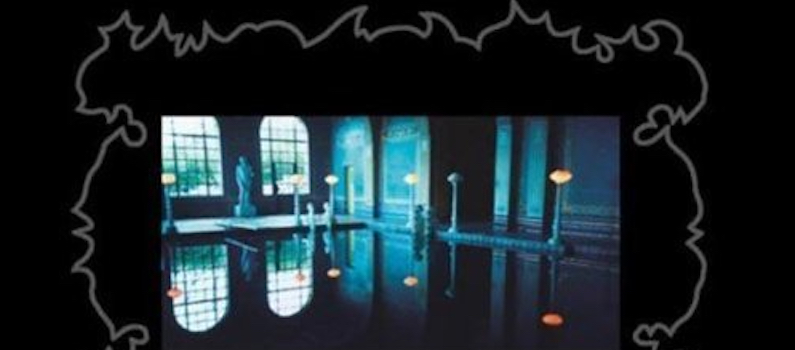In a reductive sense, there a couple of categories in which you can shuffle and sort your standard lot of CD re-releases. The first is a set driven by promotion, the early recordings and self-released offerings flooding the market as a way of setting the stage for a new product to sell, sell, sell. The second is a set defined by its drive to illuminate, a means of providing context to a canon or further illustrating a group’s growth, progressions, and development over time. And then, for the sake of shattering a rule before you give it to much mind, there are those releases that fall somewhere between. These re-releases are well-timed, to be sure, and maybe, just maybe, they’ll move a few units of a band’s latest offering, but they feel mostly like a way of shining light in the shadows, unearthing underappreciated gems or providing a fuller understanding of how a group of musicians moved from A to B. Such is the case with Knife in the Water, an Austin band that not only is offering the masses a new record, the incredible Cut the Cord, but also is inviting folks to take a second listen to its critically lauded debut, Plays One Sound and Others.
If Plays One Sound and Others proves anything, it’s that the five members of Knife in the Water had an amazingly developed sense of their sound, their songwriting, and their strengths even from their earliest days. Like Pinetop Seven’s self-titled debut, released around the same stretch of time, the record creaks with the wooden floorboards of a sun-soaked parlor in the American West, all swelling pedal steel guitars and emotive, swaying vocals full of longing and lamentation. On some songs, folksy Americana is practically a character in the record’s narratives, like in the slow lull and linger of “Seat of Pity,” where quiet guitars surround Aaron Blount and Laura Krause’s soulful duet, or “Sent You Up,” an almost playful country-western romp.
Some of the record’s finest moments, however, come where Knife in the Water starts to experiment with stripping away the layers of the compositions, leaving Blount’s sweet and sometimes-smoky wail to float on waves of nearly inaudible reverb, glassy guitars, or the simple pitter-patter of a slowly tapped kick drum or a brushed snare. For addictive examples of this approach, let your ears wander no further than “Muse,” the album-closing “Redbird,” or the spine-tingling, epic “Careening,” where the band refines a kind of spare, ethereal pop that could make Low tremble and blush. In “Careening,” which announces Knife in the Water’s penchant for shimmering and devastating melodies more than anything else on the debut, there are bridges that flow over the listener like rivers, with guitar, bass, and drums carefully tumbling and gathering force as Blount sings often just above a whisper, Krause a filmy spirit somewhere deep in the background. This song alone could convert legions of new listeners to the band. And, given increased exposure, it should.
If the newly released Cut the Cord proves anything, it’s that Knife in the Water can indeed peel away the layers of its songs and slowly, carefully reconfigure them without softening the impact of every chord or dulling the edge of the group’s delivery. The album-opening “Village Fireworks” — with its crystalline electric guitar, all digital delay and reverb, its slowly cooed vocals, and its spare percussion and bass — feels less like the spare country balladry of Plays One Sound and Others than its does something from whispered post-rock heroes Bedhead or The For Carnation. Again, it’s Blount and Krause who steal the show on the track, their voices at times feeling like phantoms that echo and resonate right from the core of the band’s sound. Then there are songs like the poppy shuffle of “Massacre,” where acoustic guitar lines, keyboard interjections, and slowly unfolding drum lines lead the way. Bill McCullough’s trademark pedal steel is still on display (see the somber rumination of “Bayonet”), but the band has also expanded bravely into the terrain of 1960s psychedelia (see the floating and lurking of “My Skin Would Cover the Waterfront” or the spacey, organ-tinged “Threads of Carbon in Watercolor”).
And then there are songs like “Lighthouse to the Blind,” where Knife in the Water’s modus operandi is possibly the most pronounced. Here, the quintet seamlessly blends soft vocals, country-folk songwriting foundation, and penchant for psychedelia and soul into one cohesive whole. With just a minute left in the track, Blount carefully intones, “Well, you can’t make someone see what you can’t show.” As Knife in the Water’s debut CD and latest full-length both make the rounds over and over and over again inside your head, what the group is showing is all too clear: these musicians have always been amazing, and possibly never better, at crafting songs and painting aural horizons to haunt and enchant you. – Delusions of Adequacy, March 29, 2004




